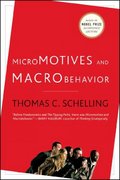Question
Fisher-Price Toys Company sells a variety of new and innovative children's toys. Management Learned that the preholiday season is the best time to introduce a
Fisher-Price Toys Company sells a variety of new and innovative children's toys. Management Learned that the preholiday season is the best time to introduce a new toy, because many families use this time to look for new ideas for December holiday gifts. When Fisher-Price discovers a new toy with good market potential, it chooses on October market entry date. In order to get toys in its stores by October, Fisher-Price places one-time orders with its manufacturers in June or July of each year. Demand for children's toys can be highly volatile. If a new toy catches on, a sense of shortage in the marketplace often increases the demand to high levels and large profits can be realized. However, new toys can also flop, leaving Fisher-Price stuck with high levels of inventory that must be sold at reduced process. The most important question that company faces is deciding how many units of a new toy should be purchased to meet anticipated sales demand. If too few are purchased, sales will be lost; if too many are purchased, profits will be reduced because of low prices realized in clearance sales. For the coming season, Fisher-Price plans to introduce a new product called Weather Teddy. This variation of a talking teddy bear is made by a company in Taiwan. When a child pressed Teddy's hand, the bear begins to talk. A built-in barometer selects one of five responses that predict the conditions. The responses range from "It looks to be a very nice day! Have Fun" to "I think it may rain today. Don't forget your umbrella." Tests with the product show that, even though it is not a perfect weather predictor, its predictions are surprisingly good. Several of Fisher-Price's managers claimed Teddy gave predictions of the weather that were as good as many local television weather forecasters. As with other products, Fisher-Price faces the decision of how many Weather Teddy units to order for the coming holiday season. Members of the management team suggested order quantities of 15,000, 18,000, 24,000, or 28,000 units. The wide range of order quantities suggested indicates considerable disagreement concerning the market potential. The product management team asks you for an analysis of the stock-out probabilities for various order quantities, an estimate of the profit potential, and to help make an order quantity recommendation. Fisher-Price expects to sell Weather Teddy for $24 based on a cost of $16 per unit. If inventory remains after the holiday season, Fisher-Price will sell all surplus inventory for $5 per unit. After reviewing the sales history of similar products, Fisher-Price's senior sales forecaster predicted an expected demand of 20,000 units with a .95 probability that demand would be between 10,000 units and 30,000 units.
Question: One of Fisher-Price's managers felt that the profit potential was so great that the order quantity should have a 70% chance of meeting demand and only a 30% chance of any stock-outs. What quantity would be ordered under this policy, and what is the projected profit under the three sales scenarios?
I need the recommendation with excel formulas as proof to include in my submission.
Step by Step Solution
There are 3 Steps involved in it
Step: 1

Get Instant Access to Expert-Tailored Solutions
See step-by-step solutions with expert insights and AI powered tools for academic success
Step: 2

Step: 3

Ace Your Homework with AI
Get the answers you need in no time with our AI-driven, step-by-step assistance
Get Started


